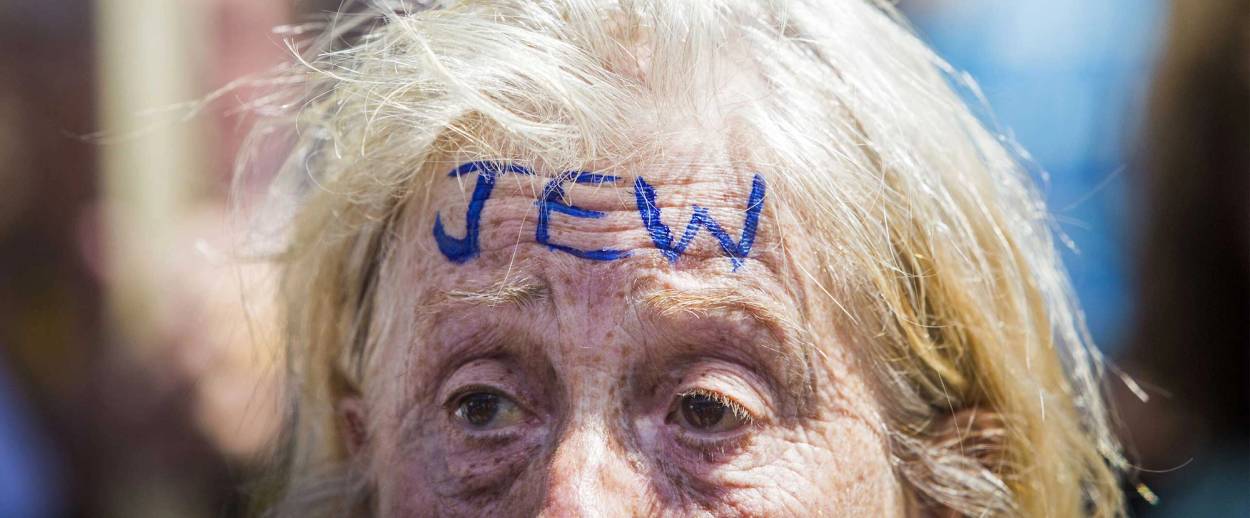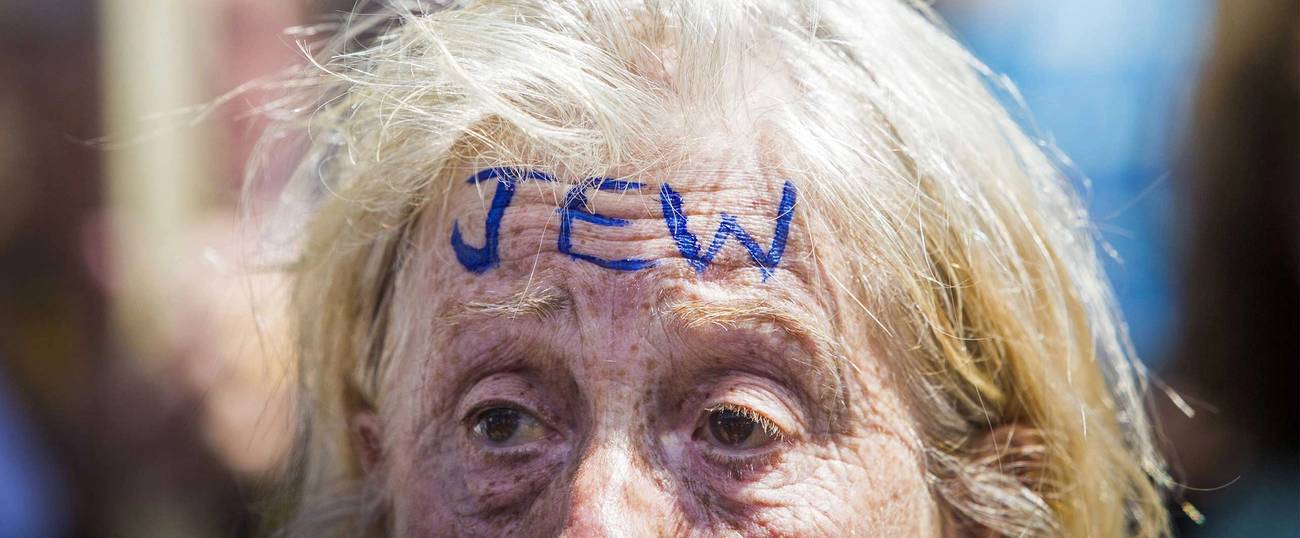De-Assimilation, the New Jewish Fear
A major study in the U.K. highlights the growing danger of anti-Semites gaining mainstream acceptance in Britain




In the David Mamet movie Homicide, a Jewish cop grumbles about being made to investigate the murder of a Jewish pensioner. “They’re not my people, baby,” he quips to his partner. “So much anti-Semitism in the last 4,000 years, we must be doing something to bring it about!” Yet as he starts to uncover the most extreme form of organized anti-Semitism, he realizes that his secular choices count for nothing. He rushes to embrace his Jewish identity—only to find that it has been drawn to the surface by a skillfully constructed echo chamber. A movie that appeared to be about anti-Semitism turns out to be about confirmation bias. More fundamentally, it is about the pitfall of allowing Jewish identity to be defined by anti-Semitism.
Both issues are at the heart of a major study recently undertaken in the United Kingdom. It draws a distinction between conscious, ongoing anti-Semitism—rated at about 5 percent of the population—and anti-Semitic tropes more widely present in society; one or more of which are held by up to 30 percent of people. It cautions that because people often hold one such sentiment in isolation—or even alongside positive sentiments—a single expression alone does not necessarily make an anti-Semite. Yet lack of context means that such isolated sentiments “have an important bearing on how Jews perceive anti-Semitism.” The report did, however, find that anti-Israel and anti-Semitic views are much more closely correlated when they become extreme—while both are much more pronounced among certain other religious subgroups present in British society, namely Muslims. The acceptance of open anti-Semites and anti-Semitism at the highest levels of the British Labour party highlights the growing danger of anti-Semites gaining mainstream acceptance in Britain.
The report nonetheless counsels Britain’s Jewish community to keep calm and carry on. It is a remarkably level-headed conclusion—minimizing grievance at a time when other minority groups typically amplify it. Doing so implicitly rejects two norms underpinning the wider moral panic about hate crime. The first is that victims are best—indeed uniquely—qualified to identify prejudice. This is a view recently confirmed by U.K. sentencing guidelines, which define hate crime as anything “which the victim—or anyone else—thinks is based on someone’s prejudice toward them.” The second is that someone can be judged on an individual comment—as testified by the ease with which an apology or resignation can now be extracted in academia and public life.
Yet up to a third of British Jews who usually wear visible symbols of their faith are reportedly now removing them. A differing but equally strong reaction—of embracing Jewish identity more closely, albeit privately—can be found among secular Jews. This journey has been undertaken in particular by British left-wingers processing the rise of anti-Semitism in the Labour Party.
To speak of a potential de-assimilation of British Jewry is perhaps crude—de-assimilate how? and to what?—and yet the fear of such a moment is deeply rooted in European Jewish history. The brutality and irrationality of Nazi de-assimilation came faster than anyone could have been imagined. German-speaking lands once appeared to be fertile ground for Jewish citizens to serve society and drive cultural progress. And yet their very contribution was turned against them. Richard Wagner’s essay “Jewishness in Music” was a reaction against the centrality of Jewish musicians to German musical life. Fin-de-siècle Vienna—which saw the rise of anti-Semitic Mayor Karl Lueger, a key influence on Adolf Hitler—was dominated by Jewish intellectuals ranging from Freud to Schoenberg. The community’s reward for its contribution provides sickening credibility to the long-running suspicion of assimilation found among some sections of the Orthodox community.
The resulting suspicion that assimilation is more fragile than it appears can be used as a prism through which to view recent Jewish-infused culture. The Meet the Parents movies play brilliantly on the culture clash underlying a secular-Jewish male nurse marrying into the ultimate WASP family (whose patriarch, tellingly, spent his career in U.S. government service). British comedian Sacha Baron Cohen uses his many masks to draw out latent anti-Semitism—not least when he led an American Midwestern audience in a rendition of Borat’s composition “Throw the Jew Down the Well.” In 2012, a light-hearted British reality TV show titled Jewish Mum of the Year caused a huge wave of such anxiety by shining light on Anglo-Jewish cultural dualism.
Such anxiety means that even anti-Semitism’s opposite force of philo-Semitism can cause disquiet. From the perspective of de-assimilation, a vocal Judeophile can be the next worse thing to an anti-Semite, because they highlight Jewish difference. Every other minority group in the West typically self-organizes and leverages the support of allies—be they straight, white, or non-transgender. Yet the Jewish community is more circumspect with such support, especially when it comes unsolicited. Such discomfort was seen in the response to a strident work of philo-Semitism published in 2014, the memoir Unchosen by British celebrity journalist Julie Burchill, which was said by the editor of the Jewish Quarterly to “exemplify not philo-Semitism but its difficulty.”
***
Like this article? Sign up for our Daily Digest to get Tablet Magazine’s new content in your inbox each morning.
Toby Guise is the author of the novel The Gold Sands. His political commentary and culture reporting has appeared in FT, The Spectator, and other publications.